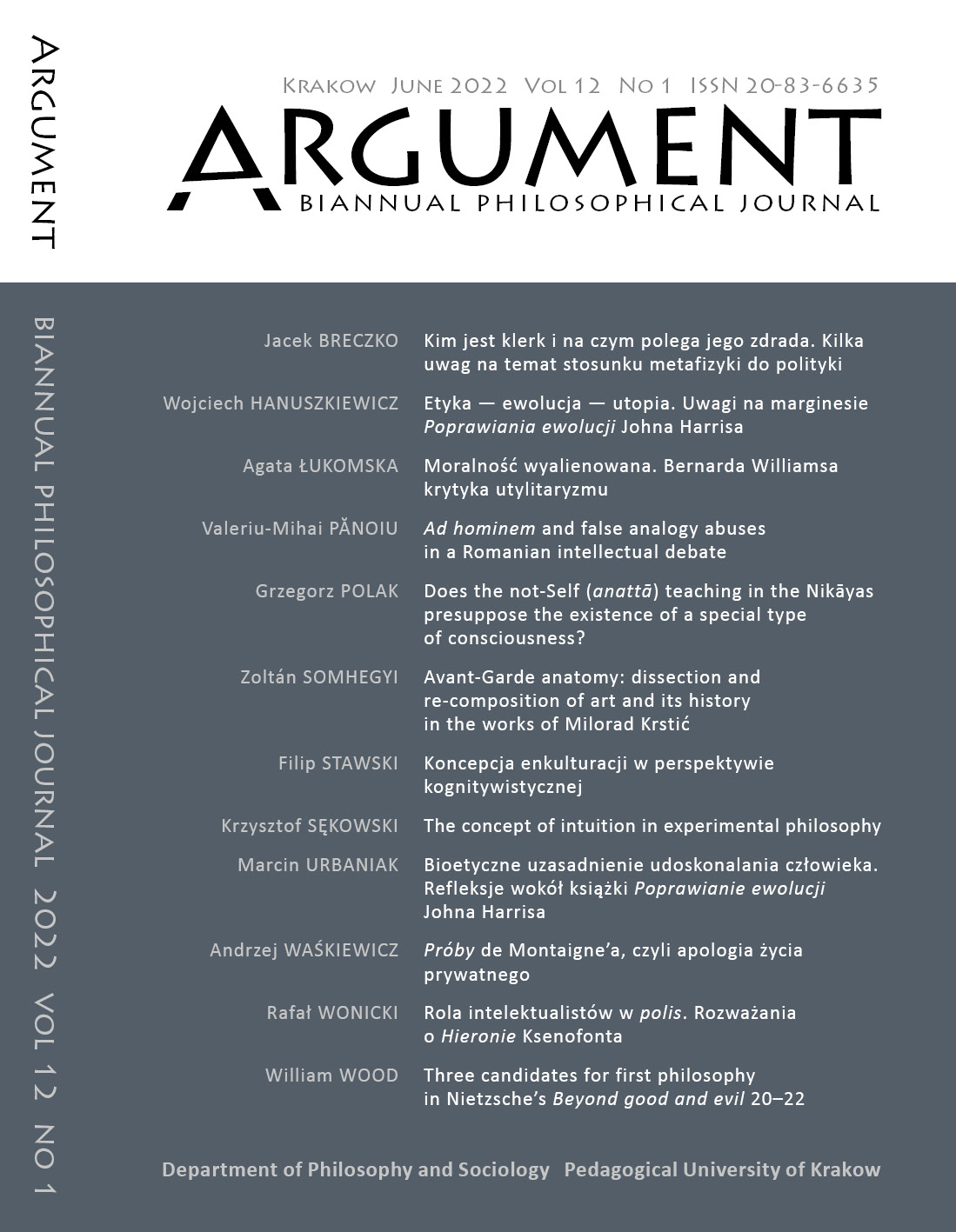The concept of intuition in experimental philosophy
DOI:
https://doi.org/10.24917/20841043.12.1.07Keywords:
experimental philosophy, intuition, methodology, pragmaticsAbstract
Although the concept of intuition has a central place in experimental philosophy, it is still far from being clear. Moreover, critics of that movement often argue that the concept of intuition in experimental philosophy does not correspond to the concept of intuition used in traditional, armchair philosophy. However, such a claim is problematic, because most attempts to define this concept are made with regard to the armchair philosophy’s point of view and not that of experimental philosophy. In the article I analyse the concept of intuition in experimental philosophy by taking into account its theoretical assumptions, and the research practice of its representatives. By analysing the most influential experimental philosophers’ views, I formulate its core characteristics. According to them, intuition is a mental state that is a reaction to the described case, which is revealed in the readiness to express a judgment about this case. Then, I investigate step by step the frequently postulated methodological, phenomenological, and etiological conditions that could narrow down the initial definition. I show that the only condition coherent with experimental philosophy’s assumptions and its practice is an etiological one, as the mental state that could be classified as intuition has to be shaped by pragmatic, and not only semantic factors. In the last parts of the text, I draw out some of the consequences of the position that I have presented, regarding the methodology of experimental philosophy and philosophy in general.


